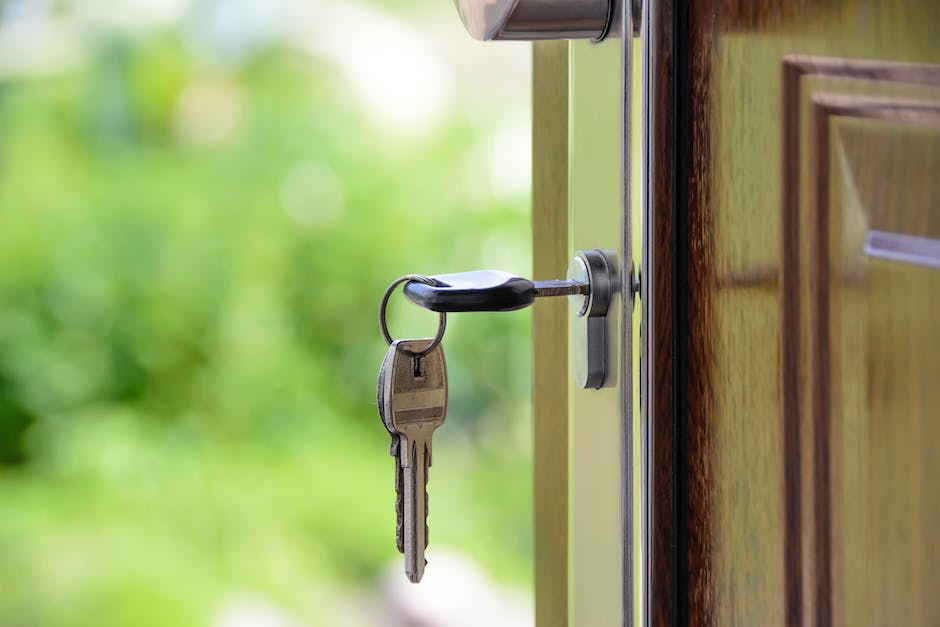Navigating the intricate world of Home Owners Associations (HOA) can be an intimidating task, especially when considering the impact they can have on rental properties. HOAs play a critical role in defining the living standards within a community and they can significantly influence everything from property values to the day-to-day living environment. For property owners, understanding the implications of these rules and effectively enforcing them can be the difference between a successful rental venture or a crippling liability. This undertaking provides a comprehensive overview of HOAs, delves into how their rules impact rental properties, explores the enforcement of these rules and finally, offers valuable tips to landlords on managing properties within an HOA community.
Understanding HOA
Understanding Homeowners Associations (HOAs)
A Homeowners Association (HOA) is an organized body of homeowners residing within a specific locality, community, or condominium. HOAs are typically governed by a board that manages and enforces community standards as outlined in the HOA’s bylaws or covenants, conditions, and restrictions (CC&Rs). HOAs ensure the collective wellbeing of all residents within their jurisdiction, maintaining consistency and cohesiveness across properties. They are responsible for handling community affairs, maintaining common areas, regulating architectural design and aesthetics, among other duties.
The Purpose of HOA Rules
HOA rules, stated in the CC&Rs, are designed to uphold the general aesthetic and orderliness of the neighborhood, protect property values, and ensure peaceful co-existence among residents. They might include stipulations about property maintenance—such as paint color or lawn care, restrictions on pet ownership, or guidelines about noise levels. While some may view these rules as overly restrictive, many homeowners appreciate the structure they provide, as adherence to these regulations often helps maintain a higher resale value for their homes.
Enforcing HOA Rules in Rental Properties
When it comes to rental properties specifically, enforcing HOA rules can be a slightly more complex task. The landlord, or property owner, typically has the responsibility to ensure that tenants are abiding by the rules of the HOA. These rules should be expressly laid out in the tenant’s lease agreement.
In some cases, an HOA may have the authority to enforce lease terms directly with the tenant, especially if they are living on the property full-time. However, typically, HOA boards will hold the property owner liable for their tenant’s actions.
A landlord might face fines or legal action from the HOA if the tenant fails to comply with the rules. These penalties are often passed on to the tenant, especially if such a clause is included in the lease agreement.
Common Types of HOA Rules
Common HOA rules may include limits on property alterations, landscaping requirements, guidelines for noise control, restrictions on pet ownership, and stipulations about parking. There may also be specific rules about renting, such as a cap on the number of rental properties within the community or requirements for screening prospective tenants. However, the specifics can vary greatly between different HOAs.
The Role of Property Managers in Enforcing HOA Rules
A property manager, assigned by the landlord, can play a vital role in ensuring the enforcement of HOA rules. Through regular property inspections and open lines of communication with tenants, property managers can identify potential violations and address them promptly. They can also work closely with the HOA board to ensure compliance and swiftly resolve any arising issues.
To safeguard property values and promote harmonious living, Homeowners Associations (HOAs) play a vital role in ensuring communities abide by certain living standards. Particularly when considering rental properties, it becomes essential for landlords and property managers to guarantee compliance from tenants in regards to these HOA rules. After all, they will be liable for any violations thereof.

Impact of HOA Rules on Rental Properties
Comprehending HOA Rules
HOAs are legal bodies that administer common-interest developments such as condominiums, townhouses, and planned communities. They shape and enforce guidelines to maintain a community’s aesthetic appeal, guard property values, and offer shared services. Both landlords and renters must understand these rules to enjoy a hassle-free tenancy.
HOA Rules and Rental Properties
HOA rules can significantly impact rental properties. These rules, often outlined in an HOA’s governing documents, might restrict the number of rentals within the community, impose certain standards on rental property upkeep, or even prohibit rentals altogether.
Potential HOA Restrictions
One common restriction includes a “rental cap,” limiting the number of properties within the community that can be rented at one time. The HOA might also enforce certain aesthetic standards for these rentals, ensuring that the property’s exterior conforms to a uniform style throughout the community.
Sets of HOA rules might spell out explicit tenant behavior standards to limit noise, litter, or other disruptions. They may also require landlords to screen potential tenants and provide a copy of the lease agreement to the HOA.
Effects on Rental Income
HOA restrictions can have varying effects on rental income. For instance, rental caps can create scarcity, driving up rental prices within the community. Conversely, stringent HOA rules might deter potential tenants, thereby lowering rental demand and prices.
HOA dues, mandatory payments used to maintain shared spaces and facilities, might also impact rental income. If these dues are high, a landlord might need to increase the rental price to cover the costs.
Impact on Property Value
HOA rules can either positively or negatively affect property values. On one hand, rules that ensure uniformity and cleanliness can boost property values by maintaining a high standard for the community’s appearance. On the other hand, strict rental limitations can decrease property value, primarily if majority of prospective buyers are investors seeking to rent out the property.
Interactions Between Landlords and Tenants
HOA rules don’t just affect landlords; they directly impact tenants as well. For example, if the HOA imposes noise restrictions, a tenant might need to avoid hosting large parties. Violations could lead to fines, which can lead to discord between landlords and tenants, especially if the lease agreement doesn’t clearly spell out who is responsible for paying these fines.
Alternatively, if an HOA offers amenities such as a pool, gym, or clubhouse, these facilities can enhance a tenant’s quality of life, making the property more attractive to potential renters.
Conclusion
It’s crucial to note that comprehension and implementation of Homeowners Association (HOA) regulations can substantially influence the rental property’s desirability and profitability. Furthermore, it plays a significant role in shaping the relationship between property owners and tenants.

Photo by europeana on Unsplash
Enforcing HOA Rules
Digging Deeper into the HOA and its Implication on Rental Properties
In essence, Homeowners Associations (known widely as HOAs) develop and enforce a series of regulations, sometimes referred to as “covenants,” that everyone living within their jurisdiction must adhere to. These rules span from mandating property aesthetics to instituting noise restrictions, all geared towards fostering a harmonious living environment and safeguarding property values. However, when an HOA community includes rental properties, executing these rules can become somewhat more intricate.
HOA Enforcement Process
Ensuring compliance with HOA rules typically begins with the landlord or property manager making the tenant aware of the HOA rules before they move in. This can be done through the lease agreement. If a tenant is found to be violating an HOA rule, the process of rule enforcement typically involves several steps. Firstly, the HOA usually sends a warning letter to the tenant and the property owner notifying them of the rule violation. This letter typically outlines the specific rule that has been violated and also gives a timeframe for compliance.
If the tenant continues to violate the rule after receiving the letter or fails to comply within the stipulated period, the HOA might take further action. This could involve levying a penalty, such as a fine, or taking legal action to enforce compliance.
The Consequences of Non-Compliance
The consequences for failing to comply with HOA rules can vary depending on the specific HOA’s bylaws and the nature of the violation. Generally, the HOA has the right to impose fines, and these fines are often applied to the homeowner’s HOA account. In this case, the property owner, rather than the tenant, is usually responsible for paying these penalties. The homeowner can then attempt to recover the cost from the tenant based on their lease agreement. Severe or repeated violations could result in the HOA pursuing legal action against the homeowner or potentially the tenant.
Landlord Measures For Compliance
Maintaining compliance with HOA rules requires active involvement from landlords. As previously mentioned, landlords should make tenants fully aware of HOA rules and regulations before they move in. Clear language in the lease agreement should spell out the tenant’s responsibility to follow these regulations. Lease agreements can also include provisions stipulating that breaking HOA rules constitutes a violation of the lease, which may then be grounds for eviction.
As part of this communication, landlords can provide tenants with a copy of the HOA’s covenants, conditions, and restrictions. Regular reminders about important rules can also contribute to tenant compliance. For example, sending a quick message to remind tenants of noise restrictions during quiet hours or about parking regulations can help avoid violations.
Addressing Conflict
Disputes, as it is the nature of social interactions, can sometimes surface regarding rule enforcement. In situations where disagreements arise between the homeowners association (HOA) and tenants, the landlord inevitably becomes a significant part of the picture. There may be instances where tenants disregard HOA rules, leading to steep fines. This scenario is not only financially detrimental for landlords, but it can also escalate to formal litigation. Therefore, it’s an excellent approach for everyone involved to attempt a peaceful negotiation before resorting to the legal route. Landlords can utilize methods of mediation to encourage resolution and ensure that their property retains its good standing in the community.
When it seems essential, seeking professional consultation or parallely employing mediation services can assist in resolving a dispute. It’s also crucial to recognize that landlords might need to seek counsel from a real estate attorney should the conflict escalate, ensuring they are knowledgeable about their legal rights and obligations concerning their specific HOA.

Tips for Landlords on Handling HOA Rules
Mastering HOA Regulations
Being part of a Homeowners Association (HOA) implies a need to understand and comply with its governing rules and bylaws completely. As a landlord, it is your responsibility to carefully review and interpret these codes of conduct prior to leasing your property. Be mindful that these bylaws serve a dual purpose: they shape the governance structure and routine operations of the community and also prescribe what is deemed as acceptable conduct within the community. Failure to observe these rules could potentially lead to harsh penalties, potential legal battles, or even eviction.
Communication is Key
Regular and open communication with the HOA board members is crucial to staying abreast of any amendments to the rules, special assessments, or ongoing issues that might affect your tenants or property. Attend HOA meetings whenever possible and stay updated on the meeting minutes if you cannot be physically present. Establishing a strong relationship with the board will not only help you stay compliant, but also foster a positive living environment for your tenants.
Handling Rule Changes
HOAs have the authority to implement or change rules as dictated by their governing documents or majority vote. In such situations, landlords need to promptly inform their tenants. Ensure your lease agreements include a clause that requires tenants to adhere to all HOA regulations, including those that may change during the lease term. This will assist in avoiding any possible disputes or misunderstandings between you, the tenant, and the HOA.
Pros and Cons of Buying a Rental Property in an HOA Community
Real estate investments in HOA-governed neighborhoods can provide numerous benefits, such as maintenance-free living, access to amenities, and high standard of neighborhood appearance. However, one also needs to consider the potential drawbacks: HOA fees which can affect the cash flow, restrictions on rental or leasing, and potential legal disputes due to non-compliance with community rules.
In conclusion
Being a landlord in an HOA community requires extra care, communication, and understanding to ensure you and your tenants abide by the community regulations. By doing so, a harmonious and mutually beneficial relationship can be maintained with the HOA, thereby adding value to your real estate investment.

Understanding and effectively managing HOA rules is a critical aspect of a successful rental property business. An in-depth familiarization with the how and why of HOA operations, the implications of HOA rules on rental properties, the enforcement process and potential fines, as well as the attuned art of communicating with the HOA can make a monumental difference. It is vital for landlords to remember that the key to navigating the world of property rentals within an HOA community lies in knowledge, effective communication, and constant vigilance. The reward for this dedication is a thriving rental business that operates smoothly within the parameters of the HOA community it serves.
